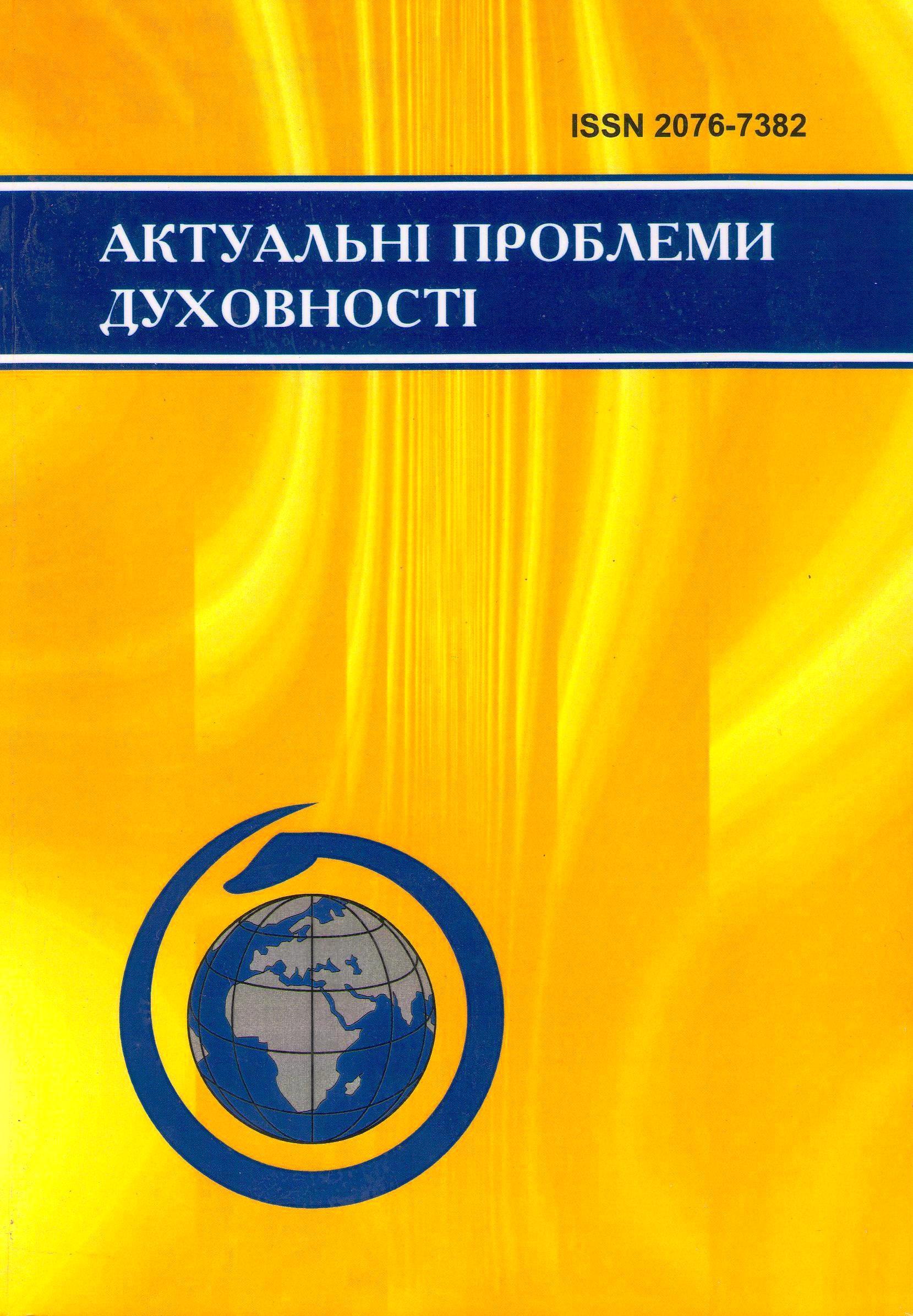До проблеми iсторичного пiдґрунтя неформальної логiки (iсторико-логiчне дослiдження)
DOI:
https://doi.org/10.55056/apm.7744Ключові слова:
формальна логiка, неформальна логiка, iсторiя неформальної логiки, концептуальнi передумови, педагогiчнi передумовиАнотація
Неформальна логiка виникає наприкiнцi 1970-х рокiв як спроба розвинути тип логiки, який спрямований на аналiз та оцiнку таких мiркувань, з якими людина щодня стикається в полiтичних i соцiальних дискусiях, у засобах масової iнформацiї, рекламi i повсякденному мiжособистiсному спiлкуваннi. На ранньому етапi становлення неформальної логiки науковцi розглядали ї ї як альтернативу формальнiй логiцi. У 1990-х ця позицiя була уточнена – цi двi логiки не є альтернативами, вони доповнюють одна одну.
Стаття присвячена дослiдженню iсторiї становлення неформального руху. Її метою є виявлення iсторичних передумов, якi сприяли появi iнiцiативи неформальної логiки. До розгляду авторка взяла iсторичний перiод з 1950-х до 1990-х рокiв.
У статтi вирiзняються два типи таких передумов – концептуальнi i педагогiчнi. По-перше, базуючись на працях Стiвена Тулмiна i Хаїма Перельмана кiнця 1950-х рокiв, авторка виокремлює як концептуальну передумову критику формальної (символiчної, математичної) логiки, сутнiсть якої полягала у ї ї неспроможностi аналiзувати мiркування, з якими люди стикаються у реальному життi (як професiйному, так i буденному), наприклад, у рiзноманiтних суперечках. З цiєї передумови випливає пропозицiя надати логiцi емпiричного характеру – розробити дiєвi iнструменти для аналiзу та оцiнцi аргументативних мiркувань. Ще одна концептуальна передумова – це iдея залучити до логiчного розгляду неформальнi помилки, яка була переконливо обґрунтована у знаменитiй працi Чарльза Гемблiна «Помилки» (1970).
Розглянувши iсторiю унiверситетського викладання логiки у 1950 -1970-х роках, у статтi обґрунтовується, що незадоволенiсть як викладачiв, так i студентiв тогочасними курсами з символiчної логiки, розробка нових логiчних курсiв, видання нових пiдручникiв i посiбникiв з логiки, якi мали практичну спрямованiсть, стали значущим iсторичним пiдґрунтям для появи неформальної iнiцiативи.
Завантажити
Посилання
Barry V.E. Practical Logic. Holt, Rinehart and Winston, 1976.
Beardsley M.C. Practical Logic. New York : Prentice-Hall, 1950.
Beardsley M.C. Thinking Straight: Principles of Reasoning for Readers & Writers. 4th ed. Englewood Cliffs, New York : Prentice-Hall, 1975.
Blair J.A. Pioneering Informal Logic and Argumentation Studies. / Puppo F. (eds). Informal Logic. A ‘Canadian’ Approach to Argument. Windsor : Windsor Studies in Argumentation, 2019.
Blair J.A., Johnson R.H. From the Editors. Informal Logic. 1984. Vol. 6(1).
Blair J.A., Johnson R.H. Informal Logic: The first international symposium. Irvine, CA : Edgepress, 1980.
Calendar UW. The general calendar of University of Windsor, 1971- 1972.
Capaldi N. The Art of Deception: An Introduction to Critical Thinking. Buffalo : Prometheus Books, 1973.
Copi I.M. Introduction to Logic. New York : Macmillan, 1953.
Engel S.M. With Good Reason: An Introduction to Informal Fallacies. New York : St. Martin’s Press, 1976.
Ehninger D. Influence, Belief, and Argument: An Introduction to Responsible Persuasion. Scott Foresman & Co., 1974.
Engel S.M. With Good Reason: An Introduction to Informal Fallacies. New York : St. Martin’s Press.1976.
Fogelin R.J. Understanding Arguments: An Introduction to Informal Logic. New York : Harcourt, Brace, Jovanovich, 1978.
Geach P.T. Reason and Argument. Berkeley : University of California Press, 1976.
Govier T.A Practical Study of Argument. Belmont, CA : Wadsworth, 1985.
Hitchcock D. Critical Thinking: A guide to evaluating information. Agincourt, ON : Methuen Publications, 1983.
Hamblin S.L. Fallacies. London : Methuen, 1970.
Johnson R.H. Informal Logic and Politics / E.M. Barth & E.C.W. Krabbe (еds). Logical and Political Culture. Amsterdam : North Holland, 1992.
Johnson R.H. Informal Logic and Pragma-Dialectics. Some Differences / Eemeren F.H. van, Grootendorst R., Blair J. A. & Willard C. A. (eds). Analysis and Evaluation. Proceedings of Third ISSA Conference on Argumentation. Amsterdam : Sic Sat, 1995, P. 237-245.
Johnson R.H. Making sense of informal logic. Informal logic. 2006. Vol. 26(3). P. 231-238.
Johnson R.H. The Recent Development of Informal Logic / Blair J.A., Johnson R.H., (eds) Informal Logic. The First International Symposium. Inverness : Edgepress, 1994. P. 3–28.
Johnson R.H. The Relation between Formal and Informal Logic. Argumentation. 1999. Vol. 13. P. 265–274.
Johnson R.H. The Rise of Informal Logic. Newport News : Wale Press, 1996.
Johnson R.H., Blair J.A. From the Editors. Informal Logic. 1978. Vol. 1(1).
Johnson R.H., Blair J.A. Informal logic. An Overview. Informal Logic. 2000. Vol. 20(2). P. 93-107.
Johnson R.H., Blair J.A. Logical Self-Defense. Toronto : McGraw-Hill Ryerson, 1977.
Kahane H. Logic and Contemporary Rhetoric. The Use of Reasoning in Everyday Life. Belmont : Wadsworth, 1971.
Konishi T. Toward a History of Argumentation: Canadian informal logic. In: J. Ritola (Ed.), Argument Cultures: Proceedings of OSSA 09. Windsor, ON : OSSA, 2009.
Khomenko I. Empirykalizatsiya v suchasniy teoriyi argumentatsiyi: istorychni peredumovy ta napryamy doslidzhen. Aktualni problemy dukhovnosti. 2022. Vol. 23. S. 217–232.
Michalos A.C. Improving Your Reasoning. Englewood Cliffs : Prentice Hall, 1970.
Perelman C. Olbrechts-Tyteca L. Trait´e De L’argumentation: La Nouvelle Rh´etorique. Paris : Presses Universitaires de France La Nouvelle Rhetorique, 1958.
Puppo F. (eds). Informal Logic: A ’Canadian’ Approach to Argument. Windsor : Windsor Studies in Argumentation, 2019.
Scriven M. Reasoning. New York : McGraw Hill, 1976.
Toulmin S.E. The Uses of Argument. Cambridge : Cambridge UP, 1958.
Завантаження
Опубліковано
Номер
Розділ
Ліцензія
Авторське право (c) 2024 Ірина Хоменко

Ця робота ліцензується відповідно до ліцензії Creative Commons Attribution 4.0 International License.





